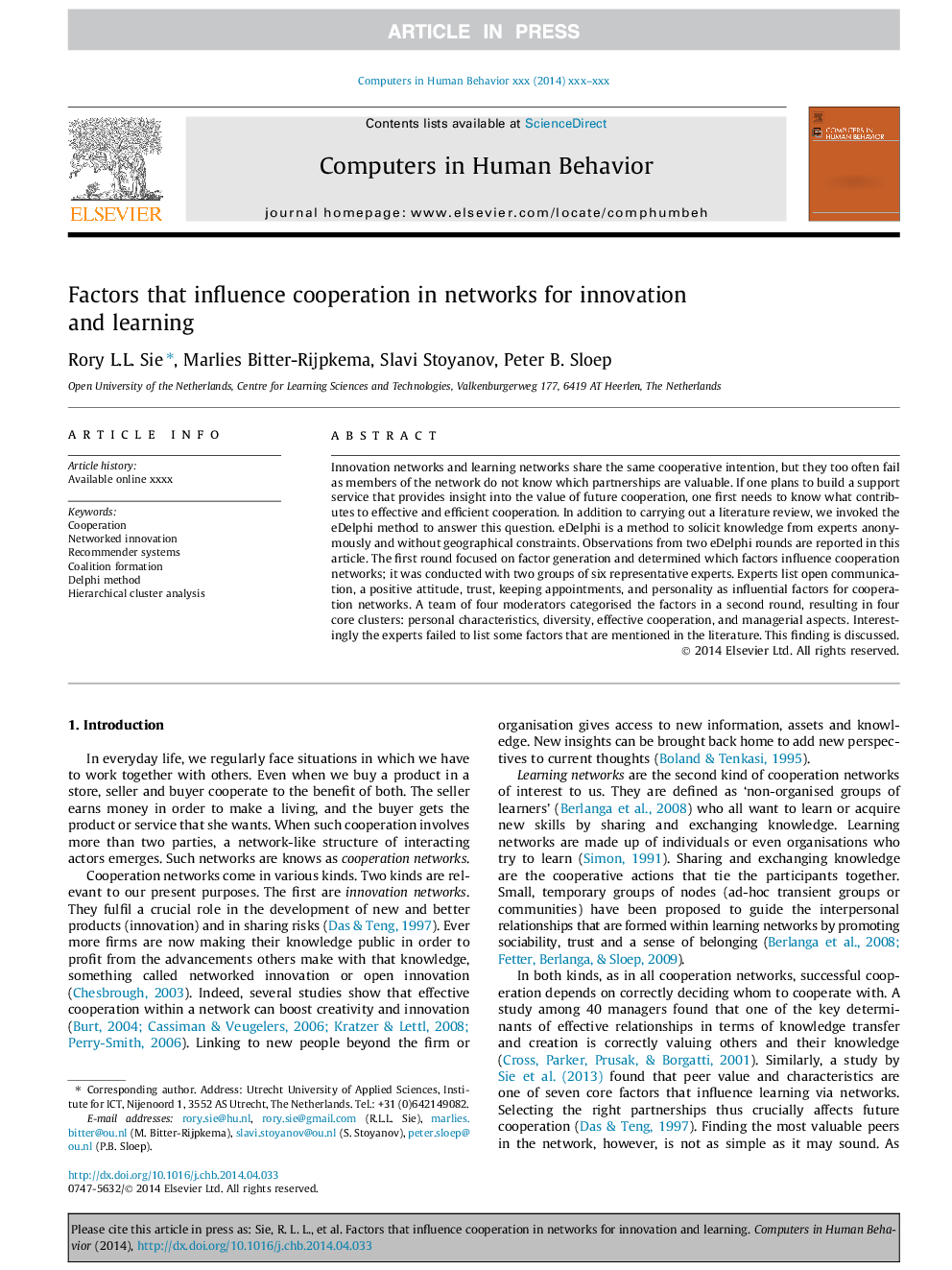| Article ID | Journal | Published Year | Pages | File Type |
|---|---|---|---|---|
| 6839098 | Computers in Human Behavior | 2014 | 8 Pages |
Abstract
Innovation networks and learning networks share the same cooperative intention, but they too often fail as members of the network do not know which partnerships are valuable. If one plans to build a support service that provides insight into the value of future cooperation, one first needs to know what contributes to effective and efficient cooperation. In addition to carrying out a literature review, we invoked the eDelphi method to answer this question. eDelphi is a method to solicit knowledge from experts anonymously and without geographical constraints. Observations from two eDelphi rounds are reported in this article. The first round focused on factor generation and determined which factors influence cooperation networks; it was conducted with two groups of six representative experts. Experts list open communication, a positive attitude, trust, keeping appointments, and personality as influential factors for cooperation networks. A team of four moderators categorised the factors in a second round, resulting in four core clusters: personal characteristics, diversity, effective cooperation, and managerial aspects. Interestingly the experts failed to list some factors that are mentioned in the literature. This finding is discussed.
Keywords
Related Topics
Physical Sciences and Engineering
Computer Science
Computer Science Applications
Authors
Rory L.L. Sie, Marlies Bitter-Rijpkema, Slavi Stoyanov, Peter B. Sloep,
